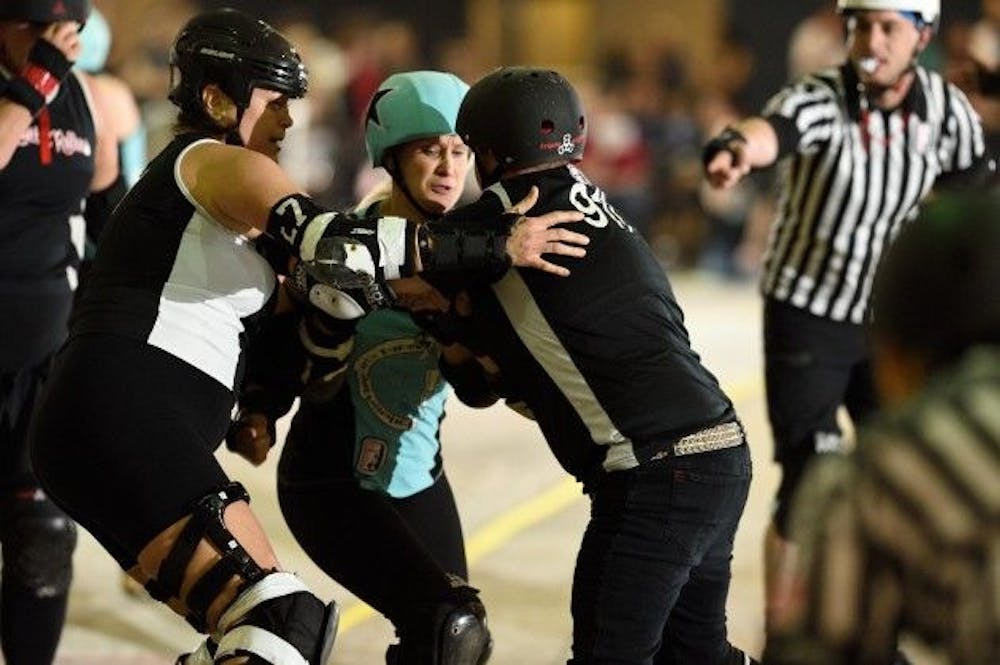Emily Ward attended a friend's Roller Derby game four years ago. While she expected to be just another attendee among the many Memphians, she was challenged to try the sport.
Ward, who works as an eye doctor assistant by day, is now known in the Derby circuit as Midtown Mauler. Nicknames are often used to give skaters to form an alter-ego persona.
Before she joined the Memphis Roller Derby, she had no previous experience playing sports and didn't even know how to skate.
"A lot of people (on the team) played sports, and learning how to skate was difficult," Ward said. "It was also hard balancing (roller derby) with working full-time and going to nursing school."
Memphis Roller Derby has been around since 2004 and is a member of the Women's Flat Track Derby Association.
There are two types of teams in roller derby - a home team who skates at least once a week and a travel team who skates at least two nights a week plus travels.
The first roller derby game was played in 1935 in Chicago and now there are over 12,000 clubs nationwide.
Roller derby is played in two 30-minute halves and is five-on-five with both teams skating in the same direction.
Inside the halves there are two-minute "jams" in which a team will pick a designated player and they will attempt to lap the other team to score more points.
Ward said that one of the great things about being in roller derby is seeing a lot of new places.
"Roller derby basically helps you travel to other cities," Ward said. "We just got back from Charlottesville, Va., and we are going to Dallas in a couple of weeks. It's exciting."
Another aspect of roller derby is that there is always a new challenge, like a video game, in the fact that if someone finishes one level there is always the next one, according to Ward.
She also said that the physicality sneaks up on you, because when you are learning the sport you also have to learn the different strategies that come with playing it.
One time, Ward broke her leg, specifically her left fibula, and it took her out of the game for three months. Noting that hindsight has 20/20 vision, she thinks it was a good thing.
"I learned a lot about coaching (roller derby) and now I coach a home team," Ward said. "It's so different, because you have to learn to not watch the game, but watch 'something else' and constantly adjust as you see fit."
Ryan Zulkiewicz, who goes by Cleveland in the derby, is a head referee for Memphis and WTFDA.
"I love the culture, the empowerment of women, the women run the league and fundraise for it," Zulkiewicz said. "To physically be able to score and stop the opponent from scoring is (very exciting)."




